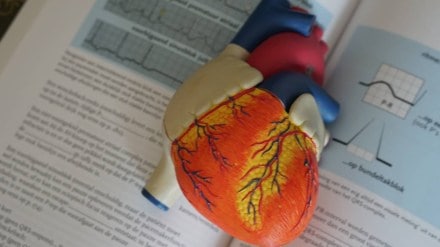In a sad turn of events, filmmaker Sanjay Gadhvi reportedly suffered a heart attack during his morning walk, leading to his untimely death. This incident sheds light on the fact that many heart attacks tend to happen between 4 am and 10 am due to various triggers. Awareness becomes crucial, especially for those with undiagnosed heart conditions.
Triggers for Early Morning Heart Attacks:
The body gears up for the day between 4 am and 10 am, releasing adrenaline and stress hormones, such as cortisol, at their peak. These hormones not only thicken the blood but also make platelets stickier, increasing the risk of blood clots and rupturing unstable plaques in the arteries. The constricted arteries during the early morning, caused by the lowest ambient temperature, make the heart pump harder, elevating blood pressure and triggering potential heart attacks.
During REM sleep, the final phase of the sleep cycle, irregular heart rates, increased blood pressure, and higher breathing rates can lead to plaque rupture. The body’s circadian system, which regulates wakefulness and tiredness, releases an increased amount of PAI-1 protein cells around 6.30 am, heightening the risk of blood clots that may lead to a heart attack.
Preventive Measures:
Monitor Blood Pressure: If you have hypertension, anticipate a spike in blood pressure during the early morning. Doctors often recommend taking blood pressure medication in the first half of the day.
Consider Weather Conditions: Individuals with heart issues should avoid extreme cold and shift physical activity to a more pleasant time of the day.
Hydrate and Warm-Up: Drink two to three glasses of water before starting any physical activity. Always warm up before rigorous exercise and gradually increase intensity. Simple stretches and walking for five minutes can prepare the body for more intense exercises.
Undergo Basic Cardiac Assessment: Before starting an exercise routine, get a basic cardiac assessment and co-morbidity profile to identify potential risk factors. Knowing these factors allows better management and reduces the risk of unexpected issues.
Staying informed and taking preventive measures can go a long way in ensuring heart health, especially during the vulnerable early morning hours. If you fall into any risk category, consult with healthcare professionals to create a personalized plan for a healthier lifestyle.
